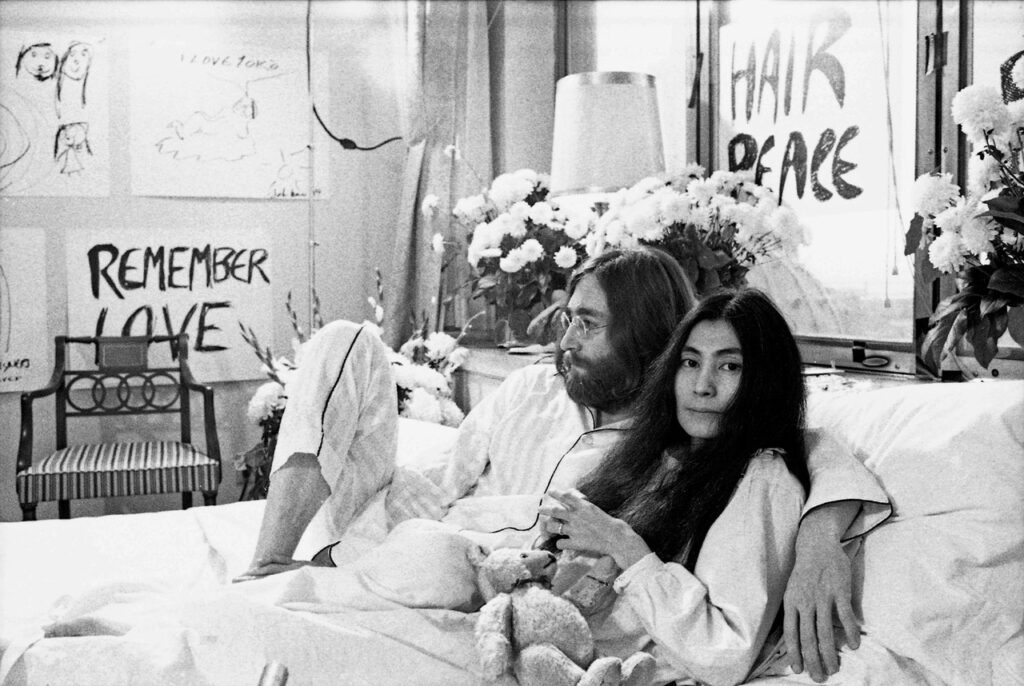On 26 May 1969, John Lennon of The Beatles and his wife, Yoko Ono, began their second Bed-In for Peace in Room 1472 of the Queen Elizabeth Hotel in Montreal, Canada. The event was part of their ongoing campaign to promote world peace in a non-violent and attention-grabbing way.

The Montreal Bed-In followed an earlier one in Amsterdam, held in March 1969 immediately after their wedding. Their message was simple but powerful: make love, not war. Instead of opting for a traditional honeymoon, the couple chose to use the media spotlight on their relationship to draw global attention to the horrors of war and the need for peace — particularly as the Vietnam War raged on.
For a week, from 26 May to 2 June, the couple invited press, artists, poets, and activists into their hotel room, where they remained in bed, dressed in white pyjamas, and spoke about peace. The room was decorated with hand-drawn signs reading Hair Peace and Bed Peace, now iconic symbols of their protest.
During the Bed-In, on 1 June, Lennon and Ono recorded the anti-war anthem “Give Peace a Chance” in the hotel room. The recording featured a group of guests who had joined them, including Timothy Leary, Petula Clark, Dick Gregory, and others. The song would go on to become a defining anthem of the peace movement, widely adopted by protestors around the world.
This period marked a turning point in Lennon’s post-Beatles identity, as he increasingly aligned himself with activism and political causes, often alongside Ono. Their unconventional methods were met with both praise and criticism, but they succeeded in keeping the conversation about peace in the headlines.
The Montreal Bed-In for Peace remains a profoundly symbolic gesture, even more than half a century later. John Lennon and Yoko Ono’s decision to turn their honeymoon into a platform for peace was not only bold and unconventional, but it captured the spirit of an era that dared to challenge violence with love and creativity. Their message — that peace begins with dialogue, with awareness, and with individual action — still resonates powerfully today.
In a world where conflict and division continue to claim lives and shape politics, the need for peace remains as urgent as ever. Peace is not passive — it requires voices, choices, and courageous gestures, however small they may seem. Hope and humanity must always have a place in the global conversation.
Also read: ON THIS DAY: Beatles’ guitarist George Harrison is born (1943)
Featured photo source: Picture alliance / KEYSTONE / STR


